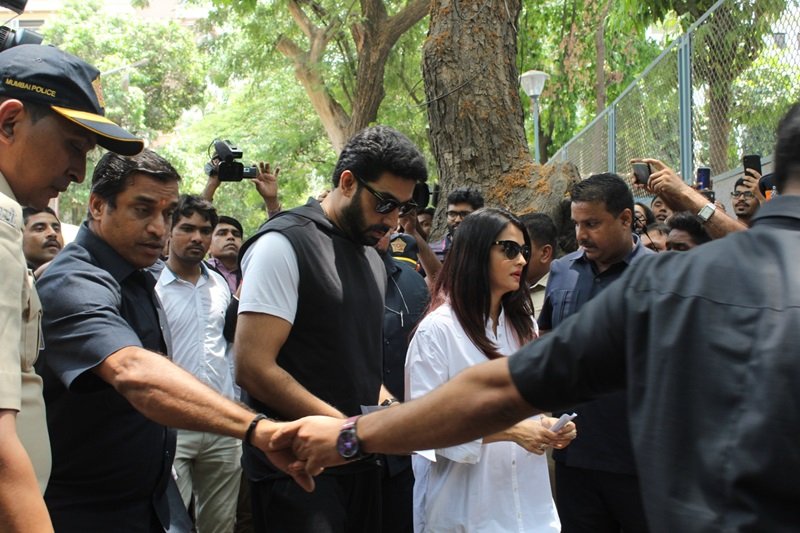Maharashtra tribals outshine Mumbai stars on V-Day
V-Day
Mumbai (IANS) – Not belying expectations, tribals and villagers in far-flung hamlets in the state ‘out-voted’ cool Mumbaikars, business and glamour world personalities in the fourth and final phase of voting for 17 Lok Sabha constituencies on Monday.
While thousands of tribals patiently standing in serpentine queues, especially in Nandurbar, Dhule, Palghar remained virtually cut-off from the electronic media, the limelight was on around 200 big names from the business, sports and glamour world.
The rural folk exercised their votes without any fanfare despite the blistering heat, but Mumbai’s big personalities were virtually mobbed – as they stepped out of their cool homes into pre-chilled vehicles, cast their votes mostly without queuing up, walking out exhibiting the indelible marked finger, smiling and “byting” out homilies before daintily departing in their deluxe cars.
Prominent people of the city are concerned by the low turnout trends in the country’s economic powerhouse and even certain other urban centres and attribute it to several factors.
For instance, by 3 p.m., Maharashtra barely notched an average polling of around 40 per cent. The handsome voting in the tribal-rural belts was rudely pulled down by the pathetic turnout of around 30 per cent in Mumbai and urban centres.
“I think the urban voters have largely taken it for granted that their single vote may not make any difference as governance doesn’t improve, irrespective of which party or candidates may come to power,” said former Chief Information Commissioner Shailesh Gandhi.
Gandhi says that people and parties should focus on “improving the governance for the next five years” like in advanced democracies rather than deploying “all energies towards winning or losing an election that comes every five years”.
A leading Mumbai businessman Pratap S. Bohra attributes the “irritatingly low turnout” in Mumbai and urban centres due to the “self-centric and selfish nature” of the wealthy folk who refuse to think of the nation or democracy.
“These people believe that money means everything in life… They have not an iota of understanding of the miseries of the people living in rural or tribal and backward regions of the country. These poor millions faithfully come out and vote in every election, local, state or national and then they demand their rights from the government in power,” Bohra pointed out.
A dejected social campaigner Tushar A. Gandhi, great-grandson of Mahatma Gandhi rued that the electoral response of Mumbaikars “is true to form” though another three-four hours voting time was left.
“We have always shown a less-than-keen response to elections and for Mumbaikars, the long extended weekend was far more attractive than their democratic duty,” he said.
Gandhi feels it is time now to think of some form of a ‘Poll Tax’ for those in the tax-paying bracket but who don’t vote, a kind of ‘compulsory voting’.
“This is the sad reality of our times… The average Mumbaikars are only concerned about their comfort zones and ignore their national duty of going to vote though it comes only once in five years. Then, till the next elections, they derile whoever is in power,” rued a well-known trader, Pankaj Deshmukh.
Bohra warns that “only when a major political catastrophe — like Emergency or dictatorship or curbs on personal freedom — will befall the country, that the affluent urbanites will come out of their ‘virtual world stupor’ to realize the folly of not exercising their democratic duty.”
All the above four personalities are unanimous that “everybody must exercise the power of vote”, but they also add that “those who don’t vote forfeit their right to ask questions” from whichever government comes to power.
Interestingly, social media is full of appeals, jingles, messages, even the Income Tax Department came out with a new song “Harr Vote Zaroori Hai” to lure the voters, but everything seemed to have fallen on deaf ears in urban areas.
–IANS
qn/in
Disclaimer: Validity of the above story is for 7 Days from original date of publishing. Source: AFP.


